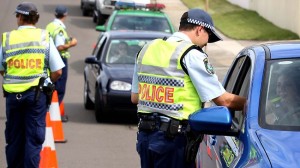Driving a motor vehicle whilst under the influence of intoxicating alcohol or drugs are amongst the most common criminal acts that are carried out within our society by normal everyday people. Despite the fact that drink driving is such a common charge, it cannot be ignored that the act of drinking alcohol and operating a motor vehicle can be extremely dangerous. Not only do drink drivers put themselves at risk of serious injury or death but also other innocent people within our community who are unwillingly subjected to the risks of a drink driver.
Otherwise known as “drink driving”, “drunk driving”, “DUI” or even “PCA”, whichever way you want to word it, it basically means that a driver is operating a motor vehicle after consuming intoxicating alcohol, drugs or substances which impair their ability to operate a vehicle properly. Drink driving is not only one of the most common criminal offences in Australia but unfortunately it is one of the most common criminal acts in virtually all Western legal jurisdictions throughout the world.
Drink driving in New South Wales (“NSW”) is commonly referred to as a “PCA” charge (Prescribed Concentration of Alcohol). Despite all its known names, drink driving is life threatening and therefore is illegal within our society.
Although this is one of the most common offences presented before court on a daily basis, we often find people from all walks of life being charged with such offences. Despite drink driving being a serious criminal charge it is not uncommon to see highly respected and successful people within our community being brought before the court and explaining to a Magistrate or Judge why they were caught behind the wheel of a motor vehicle whilst being intoxicated.
That’s right, we often see doctors, lawyers, business owners, community workers, salespeople, students and even your very own friendly police officers being caught up with incidents of drink driving. It is so common that we have even seen Supreme Court Judges committing such offences. But at the end of the day the laws are in place to protect the community at large regardless of a person’s financial status or community standing everyone is subjected to the same laws.
The NSW DUI Court Bible (referred to hereon in as the “DUI Bible”) is a bundle of detailed information outlining all of the important issues and practical steps that you should consider taking when dealing with a drink driving charge in New South Wales. It was put together to help people through the court process especially if they are not in a financial position to pay expensive legal fees to obtain advice and representation from a lawyer. It should be noted however that the information that we provide should not be taken as legal advice, it should not be substituted in place of legal advice, instead it should be taken as a informative bundle of material to help guide your through the Court process and make you aware of various common issues that a person will need to deal with following a drink driving charge.
The aim of the DUI Bible will provide useful tips, tricks and information to people who have been charged with a DUI type of offence and wish to represent themselves in court by pleading “Guilty” yet mitigating their actions in order to achieve a more favourable outcome than someone in the same position who turns up at court being completely unprepared and not knowing what to do or how to handle the court process.
Ready to move on?
[feature_box style=”19″ title=”Next…..Step # 1 – Case Assessment:” alignment=”center”]
-
Introduction
-
Step # 1 – Case Assessment
-
Step # 2 – Preliminary Preparation
-
Step # 3 – Attending First Court Mention & Obtaining Adjournment
-
Step # 4 – Main Case Preparation
-
Step # 5 – Attending & Appearing at Final Court Hearing
-
Summary
-
Resources
[/feature_box]
LEGAL DISCLAIMER: The information provided in the “NSW DUI Court Bible” is NOT legal advice and we do not hold ourselves out to be offering legal advice. We have no claim that this information should be taken as legal advice in replacement of seeking out the services of a legal practitioner.
